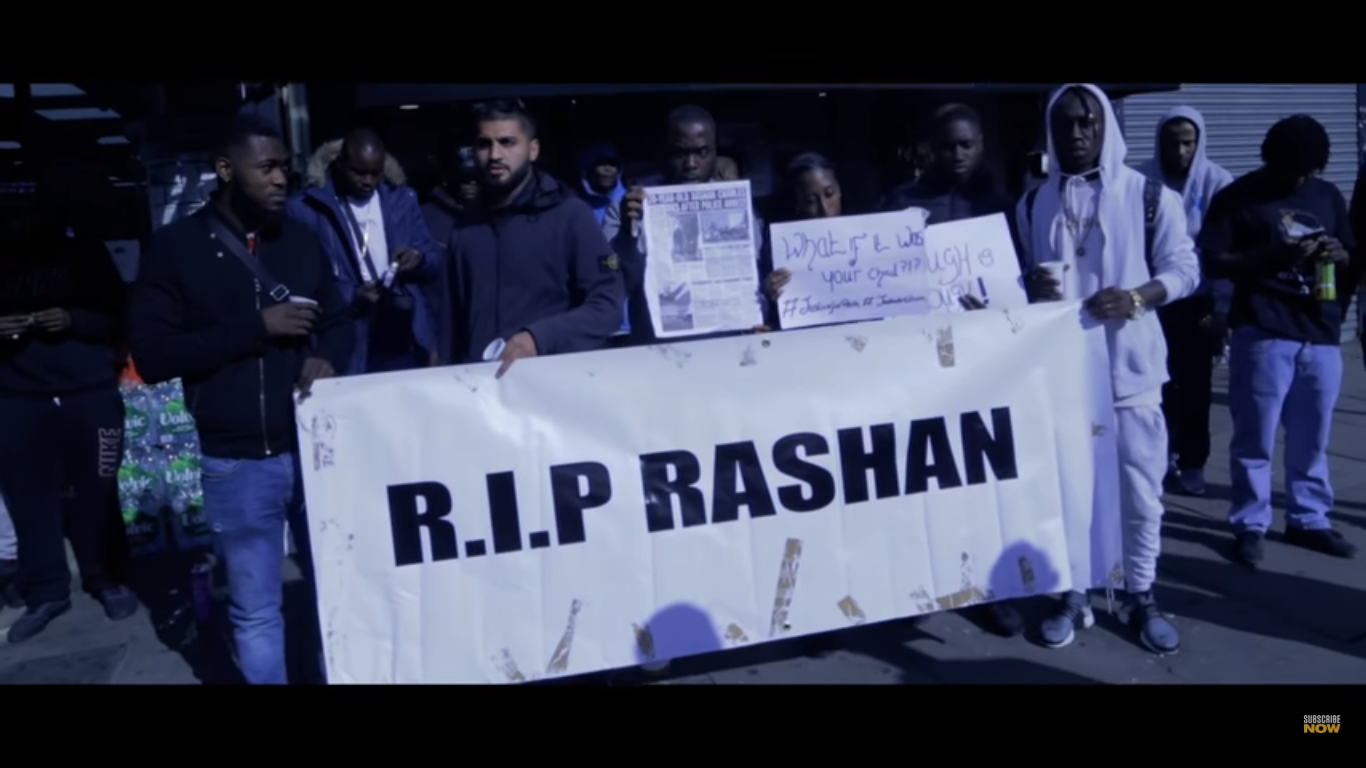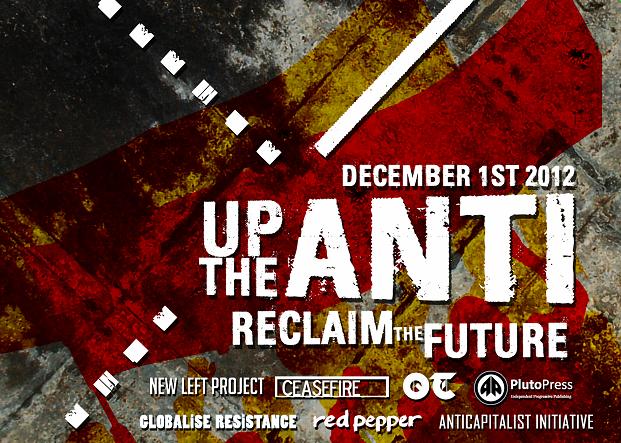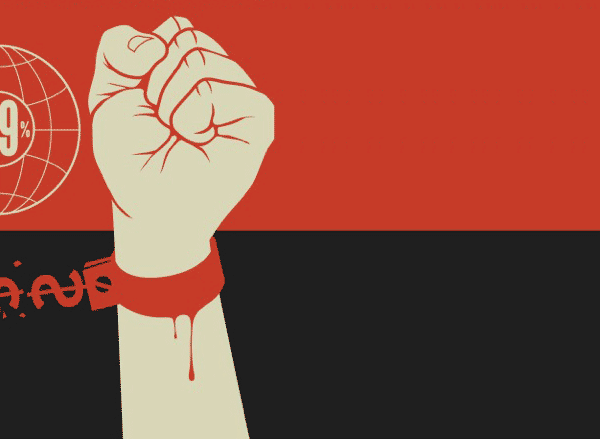On the 20th June, a jury at a coroner’s court declared that the killing of Rashan Charles, squeezed to death aged 20 on the floor of a shop in North London, by an anonymous policeman and a “civilian bystander”, was accidental. No doubt the policeman had no intention of killing him, but the verdict seems to be stretching the definition of ‘accident’ beyond its natural, and indeed legal, use. If a man of Rashan’s age had stabbed someone intending only to hurt and not kill, and the victim of that assault had died of his wounds, would any court have found that the death was an accident?
The verdict was depressingly predictable. It is a well known fact that, of the thousand plus deaths since 1990 at the hands of the British police, not one officer has been found guilty. The jury were instructed not to consider other verdicts, of negligence or of unlawful killing, or even to use the words “careless”, “negligence”, “foolish”, or “reckless”, making the description of Rashan’s death like a game of Taboo. The police officer in the shop, the one who was at the scene but apparently not in the shop, and the anonymous civilian who joined in with the assault on Rashan, were not named in order to ‘protect their safety’. This is the same excuse that is currently being used to justify not revealing any details about practically anything in the ongoing and farcical ‘spy cops’ inquiry. Neil Saunders, counsel for the two police officers in the Rashan inquest, claimed that officers had received threats on social media and feared for their safety and privacy. Saunders read from angry tweets attacking the police that were posted in the wake of Rashan’s death. He cited Jo Cox as an example of a public figure murdered because her name was known. How can we accept such excuses? Rashan’s character was subjected to various slanders (often originating from the police), and he and his family have been facing ignorant and offensive trolling from the online ‘community’. Cox, we may remember, was killed by the same kind of right wingers who are hating on the Charles family, not by members of the Left or Black working class who have been incensed by yet another unprovoked killing of an unarmed Black person, knowing long in advance that the police would escape legal justice. Rashan’s family must continue to walk the streets of Hackney, aware that the police know them and are looking for a slip up. By contrast, the undercover police officers who have had their identities revealed have suffered no reprisals. The police force’s desire to protect their officers, and the state’s complicity with it, has nothing to do with concerns for safety, and everything to do with their privileged position as defenders of the state and their immunity from prosecution.
It is a pattern. In the summer of 2017, within the space of a month, the police killed Edson Da Costa in Newham, East London (15th June) with CS spray, and Darren Cumberbatch in a hostel in Nuneaton (10th July) with a Taser. That Rashan’s death (22nd July) received a little more attention than the others was mainly due to the fact that the workers in the shop filmed the CCTV recording on a phone and uploaded it to social media before the police took the tapes away. The video was spread by people in the area, including prominent rappers like Coinz, who made a video demanding justice. The police then spread a pack of lies about Rashan having a package of drugs in his mouth, and tried to spin the ridiculous line that he had fallen ill and it was the officer’s “concern for Rashan’s safety” that had led him to throw him to the ground, cuff him and choke him to death. The ‘drugs’ turned out to be a mixture of paracetamol and caffeine (Anadin extra) and it is still not clear whether this ‘package’ was even in his mouth during the assault or whether the assault itself caused the package to get stuck in his throat. Nevertheless, these false statements were enough to spread disinformation among those not closely following different sources. There remains the assumption that the incident was unfortunate, but it was legitimate for the police to be suspicious. At the inquest last month, the police explained that Rashan was subjected to this because he had been in a car that had been using its indicator suspiciously and because, in the words of officer BX47, he was probably “out to sell drugs or involved in some sort of gang activity”. The idea that he might have got a lift from a mate and then gone into the shop near his home to buy a drink apparently did not occur. Black working class people, particularly young males, are considered suspicious simply by their very existence.
The response of the family and the community was dignified and impressive. On demonstrations at the time, the memory of 2011 was fresh and most people wanted to avert rioting. This is not because of any love for the police or bourgeois property, but it is due to the fact that people in Hackney remember the week of chaos and disorder and the vindictive state reprisals that led to hundreds of arrests and prison sentences for the most minor of offences. All we got in return for that week of anger was some liberated goods, a load of our friends locked up and some new, fancier shops on Morning Lane with the money set aside to improve the area (presumably so that next time, people will have more expensive shops to smash up). Rioting will happen again, and there were some clashes with the police that summer, but for now society is safe until another uncorrected injustice (almost certainly police violence) triggers an explosion in a new generation, who have had enough of mistreatment by White authority in school, police, social services or housing.
So what is to be done? ‘Fuck the police’ is a starting point of politics but it is not concrete enough as a demand. Reforms that the state will offer are surface changes on an institution that remains, regardless of the few individual ‘good apples’, a rotten barrel of racism, corruption and class dominance. We saw this with Rashan’s inquest, in which the police body cameras, for long a demand of reformists wanting better police accountability, turned out not to help at all. The officer outside the shop is said to have “accidentally” deleted footage. The other officer apparently switched on his body-worn video only just before the ‘member of the public’ intervened, and then could “immediately” be heard shouting: “Spit it out!” and then “Breathe”, “The drugs don’t matter”, and “We want to look after you”. Could he have been playing to the camera? Are we surprised that footage went missing? Was it not the same in the case of Sean Rigg and the Hillsborough Inquiry, to name just two other examples?
There are concrete changes which could ease the pressure on Black people in our communities and prevent this kind of death happening again. We need community discussions around the following issues.
Decriminalising drugs. Drug use is a fact across all classes of society and is not any more common among Black people. In fact, white people are numerically and proportionately more likely to be drug users. Police, however, assume otherwise, and use possession as a pretext to harass Black youth. This is not just about policing on the streets. In Hackney, a largely Black pub called the Windsor Castle, on Lower Clapton Road, was raided and shut down because of drugs found on the premises. Yet, if the police had raided White pubs and clubs on Kingsland Road, they no doubt would have found at least as much in the way of prohibited substances, and probably more. After the Windsor Castle was shut, all the Black pubs in the area had to put up signs saying that they were against drugs on their premises. Dalston Superstore and Alibi continued as normal, with long queues for the toilet cubicle every weekend. The Windsor Castle was bought by Vice magazine, its original clientele priced out of their pub.
Drug laws are thus used to criminalise certain communities and to aid gentrification. For some of the city’s youth, selling drugs seems like the most realistic way to break out of poverty. By doing so and feeding the market logic of supply and demand, they are taking risks with their future and, in the case of hard drugs, enabling addiction. Policies that address poverty would be more successful in reducing drug use than punitive, reactive policing. Even if the borough is not yet ready for full legalisation, we could discuss ways to avoid the use of drug laws to harass, abuse and even kill our young people and to reduce the harm caused by illegal narcotics.
Ending Stop and Search. There is no justice to be found in stopping and searching on ‘suspicion’. Rashan was followed because of such police powers, his guilt was assumed because of an officer’s suspicion based on Rashan’s appearance. The battle against ‘Sus laws’ in the ‘70s and ‘80s eventually got rid of ‘suspicion’ as a criminal offense. Sadly, something very similar has crept back in. The police should only be stopping people to look for weapons, and only with prior intelligence. Young people should be able to walk, cycle and drive on our streets without fear of police harassment.
Justice. Police officers should not have impunity before the law and should face the same systems of justice as anyone else. In the cases of deaths at the hands of the police, we should expect full and impartial inquiries, released quickly and with full transparency. There should be powers to prosecute where violence has been done and full legal aid available for families of the victims.
Policing. We need a police force that is democratic and accountable to the community. It should be a public service, such as the ambulance or fire service, that responds to calls from the community, not to the demands of its hierarchy and the colonial logic of domination, suppression and control. We want an end to spying, an end to deportations and an approach to the public that values dialogue, restorative justice and protection, rather than hostility, humiliation and violence. Black young people in particular are vulnerable on our streets but their biggest threat, right now, is the police force that is meant to protect them.
We call on the Left to pay attention to the suffering facing working-class communities and not to ignore the everyday violence perpetrated by the guardians of the state.
************
Image: Video still courtesy of Coinz – Justice [R.I.P Rash].



